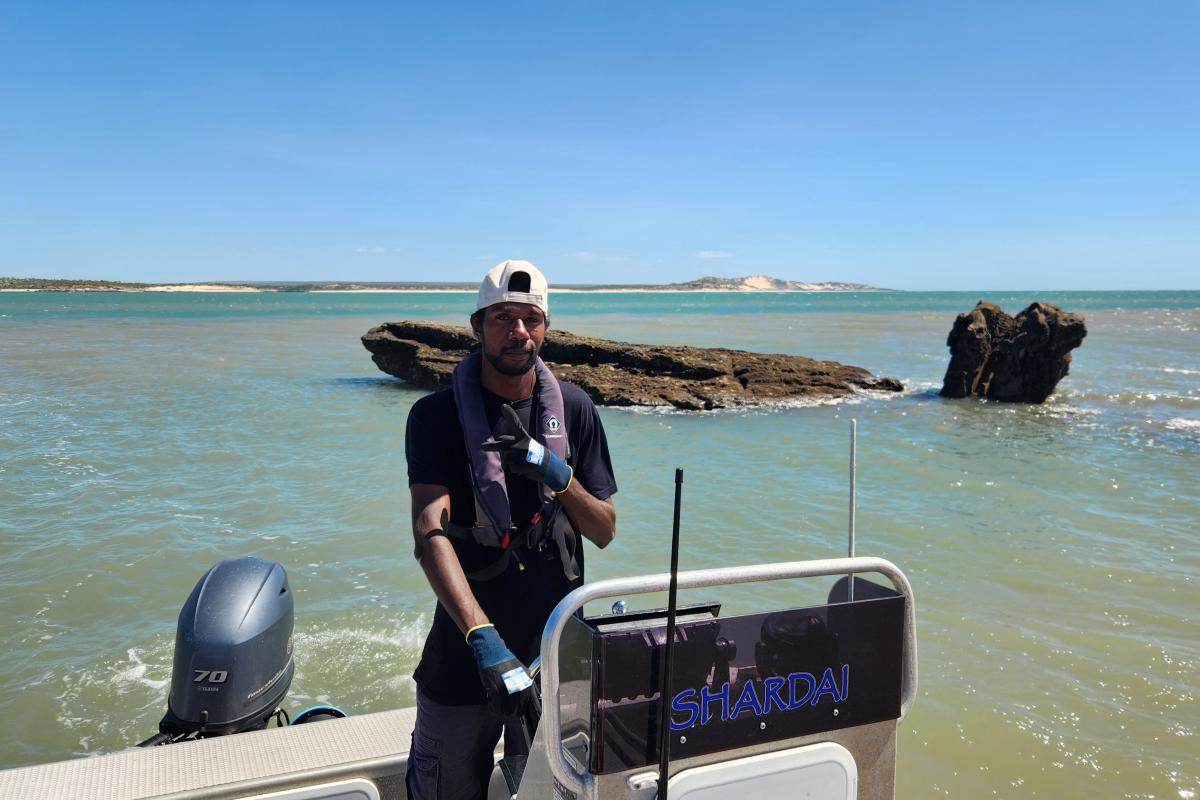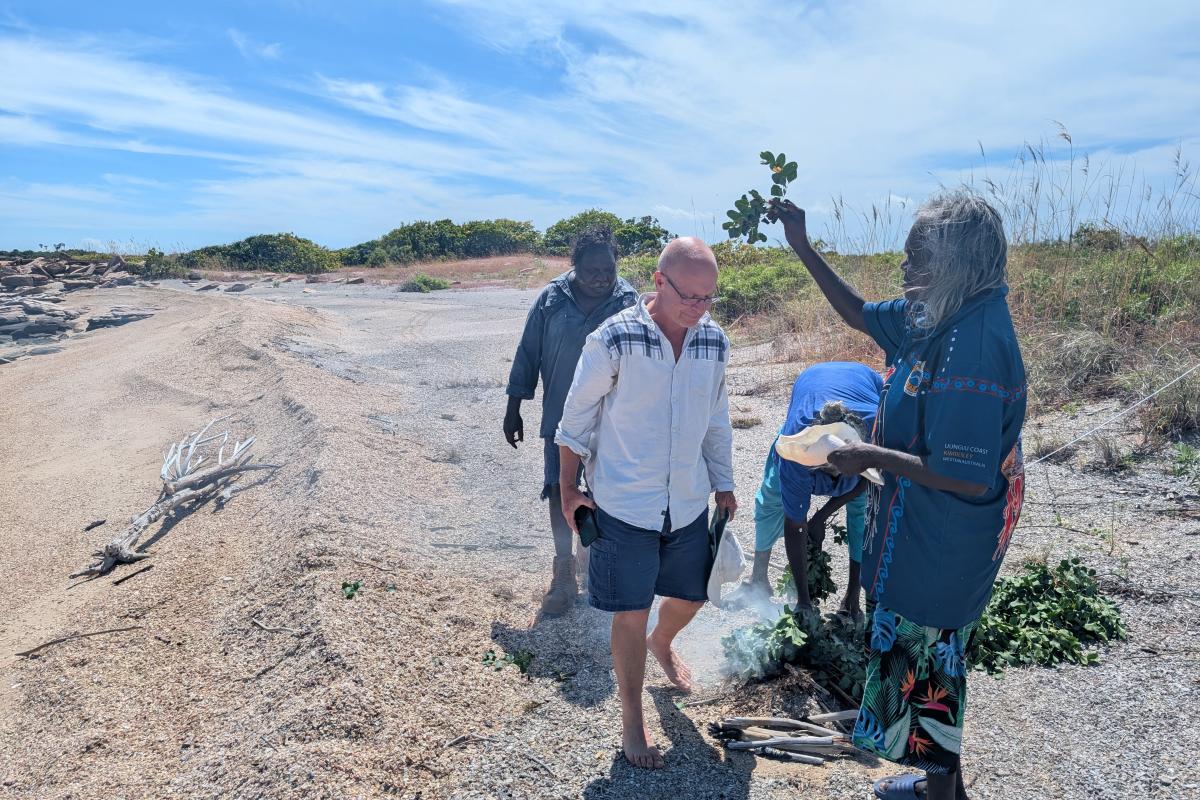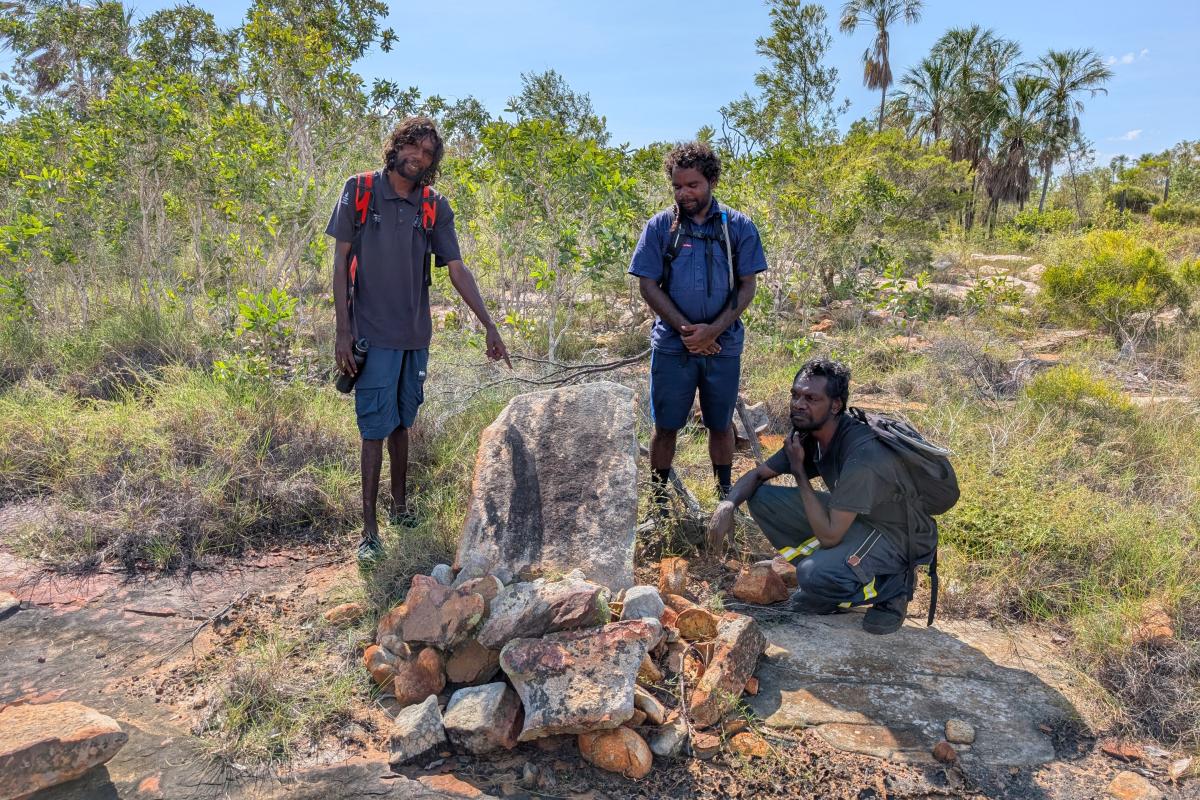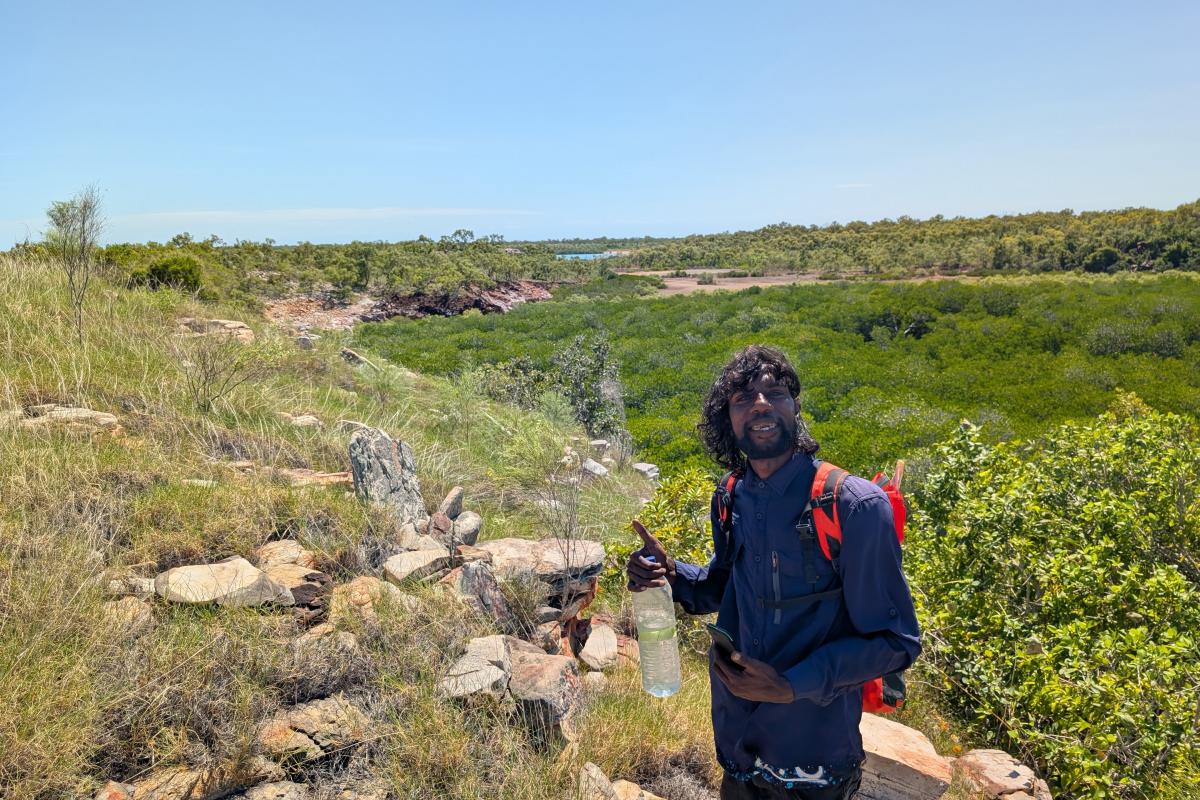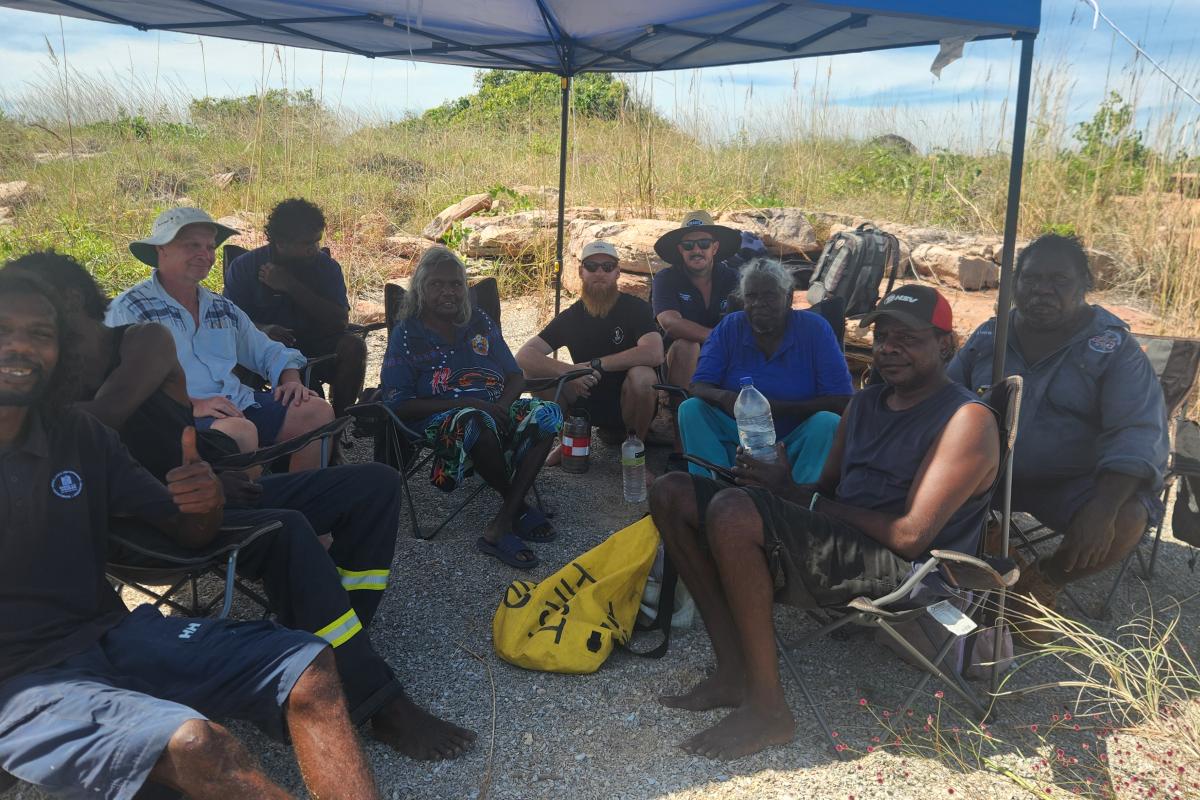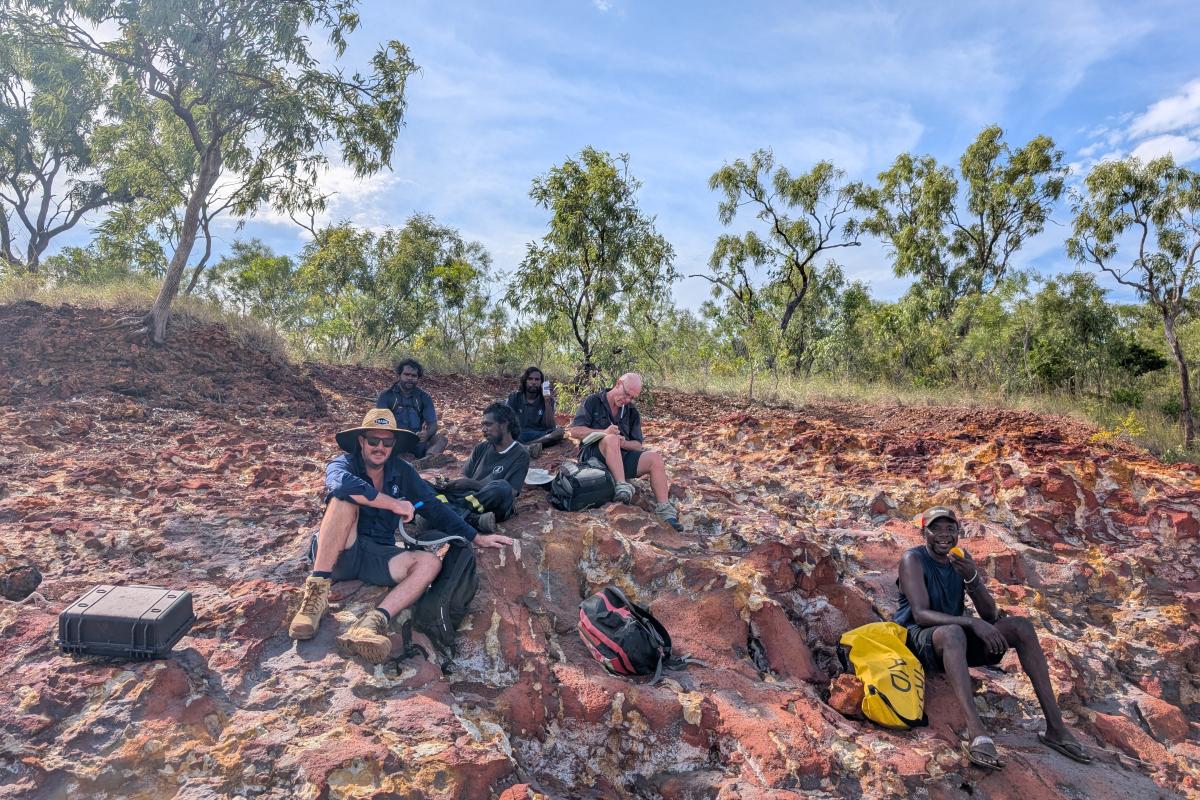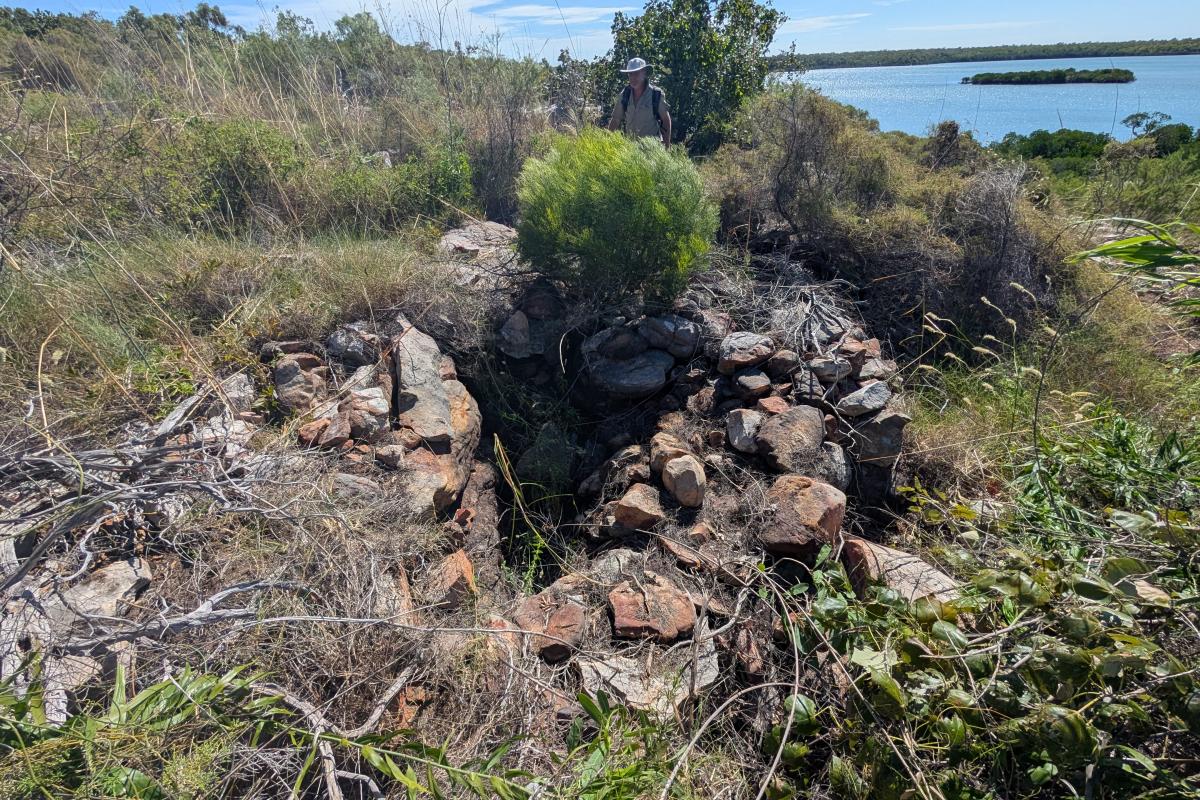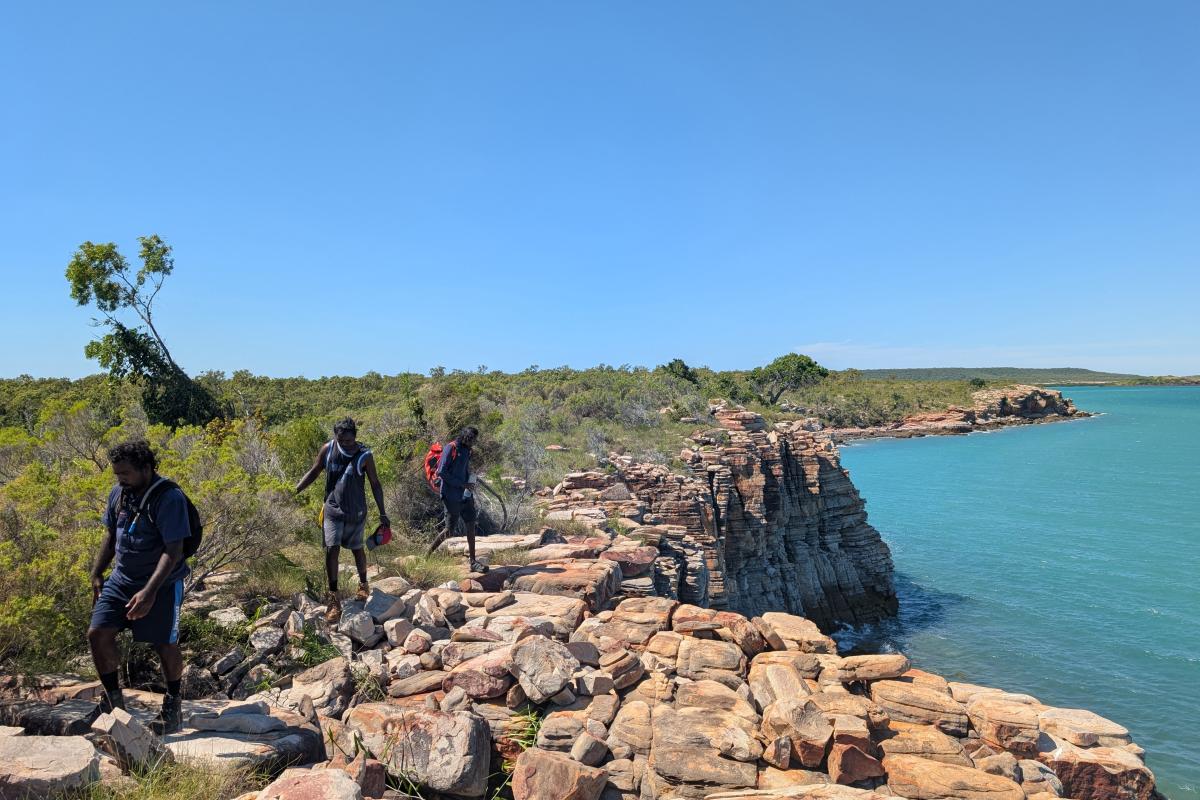Connecting Culture and Country - Kwini Rangers leading a landmark survey
In an exciting collaboration, the newly formed Kwini Ranger team joined Department of Biodiversity, Conservation and Attractions staff and archaeologists to rediscover and document ancient cultural sites across the North Kimberley Marine Park.
A cultural survey was recently conducted on an island in the North Kimberley Marine Park led by the North Kimberley Marine Park management team, UWA Social Sciences Archaeologist and the newly formed Kwini ranger team.
The week-long cultural survey aimed to connect the young Kwini rangers to Country, with intergenerational knowledge and dreaming stories handed down by elders and, recording of significant sites to paint a better picture of the use of the island by aboriginal people for thousands of years.
Trainee marine ranger Brett, also a Kwini person, joined the Marine Park ranger team in March 2024 and has since been involved in crocodile surveys, coral monitoring, fire management, cultural surveys, compliance and education voyages and, has completed his Coxswain Grade 1 certification. He hopes to continue to develop his skills in looking after Country, and loves the opportunity to work in his Country with fellow Kwini persons and rangers Brad Maraltadj and Uriah Waina. He loves the opportunity to listen to stories of country by elders Bernadette Waina, Dorothy Chenimora and Matthew Waina and fellow traditional owner Ian Waina.
The Kwini ranger team was formed in January this year, and will be involved in fauna management, invasive species management, fire management and weed management across Kwini country and islands. During the cultural survey they discovered over 50 sites, some of a very significant nature.
UWA Archaeologist, Sven Ouzman, describes the historic finds. “Discovering and recording these cultural sites is just the beginning. Some of which are extremely significant, with evidence of site excavation, water manipulation and management and, large-scale wall structures to damn up water ways. Continued work for the Kwini rangers includes looking after these sites through fire, rehabilitating the sites and tourism opportunities and showcasing how Aboriginal persons have managed country for thousands of years”.
The marine park management team are extremely excited by these historic finds and look forward to engaging with the remote community of Kalumburu to establish management outcomes and employment opportunities for traditional owners.
The Kwini people living in Kalumburu haven’t had an opportunity to look after Country like this, and the opportunities to learn and inspire younger generations is truly amazing.
The North Kimberley Marine Park is the largest state marine park in Western Australia, covering approximately 1,845,000 hectares with its south-western boundary located about 270km north-east of Derby, wrapping around the Kimberley coastline to the Northern Territory border. To put that into context, it is seven times the size of the Ningaloo Marine Park and spans from one end to the other approximately 320 nautical miles, almost 600 kilometers.
Native title determinations for the lands and waters in and adjacent to the marine park have been determined for the Wunambal Gaambera, Balanggarra, Ngarinyin and Miriuwung Gajerrong people, and the North Kimberley Marine Park team aim to work with all ranger groups in managing land and sea.
There is so much opportunity for growth in the marine park and island management space, and it is an exciting time to be involved with all the different indigenous ranger groups across North Kimberley Marine Park, facilitating opportunities for information exchange, capacity building and learning.

